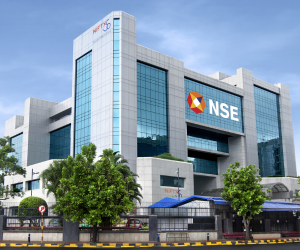Thinking of investing in the Indian stock market but unsure where to start? In this article, we explain who this broker is, how they operate under SEBI regulations, and what services they offer to help you begin.
We also cover how to open your demat and trading account, what financial instruments you can invest in, and what to keep in mind if you're new to the world of investing. A practical guide for navigating India’s capital markets with confidence.

Who is Groww and why trade with them?
Groww is a new-age investment platform that’s popular among millennials and first-time investors in India. Originally focused on mutual funds, it has expanded to offer stock trading, F&O, gold, and US stocks — all on a sleek and simplified interface.
You can trade in NSE and BSE-listed equities, invest in SIPs, track your portfolio in real time, and buy direct mutual funds with zero commission — all from a single app.
To open an account, sign up using your mobile number and email, complete your e-KYC, link your bank account, and start trading within minutes. No paperwork, no waiting.
Groww appeals to investors who value ease of use, clean design, and an all-in-one platform for stocks, mutual funds, and more. It’s perfect for those just starting out or looking to manage investments on the go.
What Are Brokers and How Do They Work in India?
Brokers are SEBI-registered intermediaries who facilitate the buying and selling of securities such as equities, derivatives, mutual funds, and bonds on behalf of investors. They operate through recognised stock exchanges like the National Stock Exchange (NSE) and the BSE (formerly Bombay Stock Exchange).
Brokers play a vital role in connecting retail and institutional investors with India’s capital markets. Whether you’re investing for long-term wealth creation, intraday trading, or portfolio diversification, brokers provide the tools and infrastructure to participate securely and efficiently. Here’s how brokers operate in India:
Order Execution: Brokers execute buy/sell orders for stocks, ETFs, mutual funds, commodities, and derivatives listed on NSE, BSE, and MCX. Most brokers offer trading through mobile apps, web platforms, or dealer-assisted terminals.
SEBI Registration: All brokers must be registered with the Securities and Exchange Board of India (SEBI) and hold valid memberships with relevant exchanges. They must also comply with KYC norms, audit standards, and financial regulations.
Demat and Trading Accounts: To trade in India, investors must open a Demat Account (with a depository participant) and a Trading Account (with a broker). These accounts are often bundled together for convenience.
Types of Brokers: India has both full-service brokers offering research, wealth management and RM support, and discount brokers offering flat-fee or zero-commission trading platforms for DIY investors.
Market Access: Indian brokers provide access to equity, derivatives, commodities, currency markets, IPO subscriptions, and even international equities (through tie-ups or GIFT City platforms).
Settlement and Custody: Trades are settled via NSDL or CDSL, the country’s two major depositories. Settlement cycles follow T+1 or T+2 timelines, depending on the asset class.
Investor Categories: Indian brokers cater to retail investors, NRIs, HNIs, PMS clients, and institutional entities like mutual funds and insurance companies.
Charges and Brokerage: Charges may include brokerage, STT, exchange fees, GST, and SEBI charges. Discount brokers often offer zero-brokerage for equity delivery, while full-service brokers follow a slab-based model.
Tradable Instruments on Indian Stock Exchanges
The NSE and the BSE serve as the country’s two major stock exchanges. Both exchanges provide a wide variety of tradable instruments catering to diverse investor goals, ranging from equity ownership to hedging, income generation, and speculative trading.
Regulated by the Securities and Exchange Board of India (SEBI), these exchanges follow global best practices for market integrity, investor protection, and efficient trade execution. Here are the main tradable instruments available to investors in India:
Equities (Shares): Equity shares of listed companies are the most widely traded instruments on NSE and BSE. Investors can buy shares of firms across sectors like IT, banking, pharma, manufacturing, FMCG, and energy. Shares offer voting rights, dividends, and long-term capital appreciation potential.
Equity Derivatives: India has one of the world’s largest derivatives markets. Futures and options (F&O) contracts are available on individual stocks and indices such as NIFTY 50 and BANK NIFTY. These instruments are used for hedging, leverage, and arbitrage, and are actively traded by retail and institutional investors.
Mutual Funds (Listed & Unlisted): Investors can participate in professionally managed portfolios via mutual funds. While most are unlisted and accessed through AMCs, some are listed and traded like shares. Categories include equity, debt, hybrid, sectoral, and ELSS funds, many of which are SIP-friendly.
Exchange-Traded Funds (ETFs): ETFs track indices like NIFTY, Sensex, gold, PSU banks, or international benchmarks. They offer low-cost diversification, transparency, and liquidity, and are suitable for both passive and tactical investors.
Corporate Bonds and Debentures: Several high-rated companies issue non-convertible debentures (NCDs) and bonds, listed on the exchanges. These instruments offer fixed returns and are suitable for income-focused investors looking for predictable payouts.
Government Securities (G-Secs): Retail and institutional investors can now directly access G-Secs via the RBI Retail Direct platform or trade them on the NSE/BSE bond platforms. These include Treasury Bills, State Development Loans (SDLs), and long-tenure sovereign bonds.
Real Estate Investment Trusts (REITs): REITs listed on Indian exchanges allow investors to gain exposure to income-generating commercial real estate. These instruments offer regular distributions and are ideal for investors seeking exposure to property without direct ownership.
Infrastructure Investment Trusts (InvITs): InvITs invest in toll roads, power transmission, gas pipelines, and other infrastructure assets. These are listed vehicles that generate revenue-backed income, often with high distribution yields.
Sovereign Gold Bonds (SGBs): Issued by the Reserve Bank of India, SGBs offer returns linked to the market price of gold, along with a fixed interest rate. They are an alternative to physical gold and are listed and tradable on the exchanges.
Initial Public Offerings (IPOs): Companies raise capital by issuing new shares to the public. IPOs are offered through ASBA (Applications Supported by Blocked Amount) and listed on NSE/BSE post-allotment. Recent IPOs have gained strong retail interest, making them a key avenue for equity exposure.





